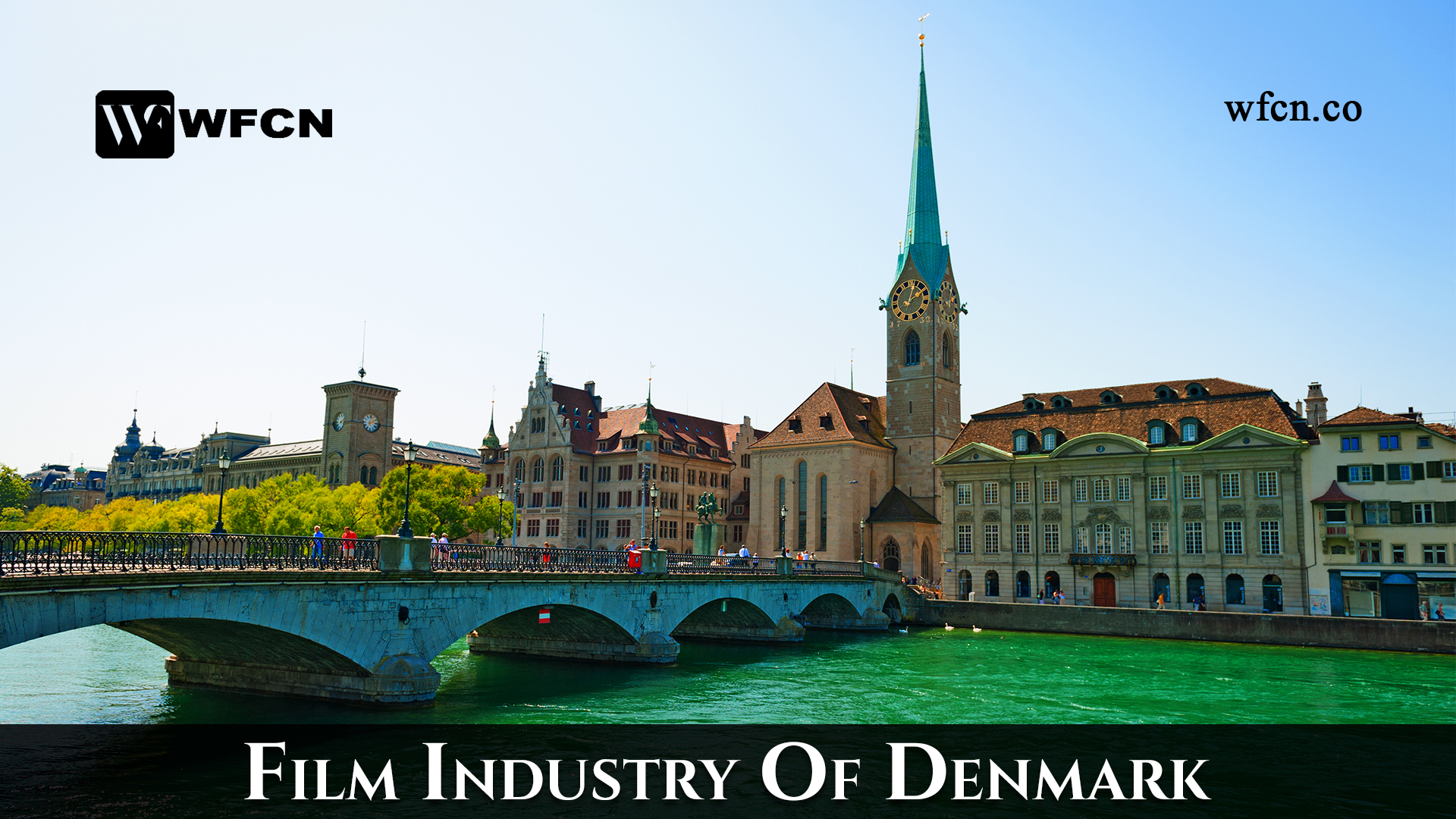Film Industry of Denmark
Denmark boasts a rich and vibrant cinematic tradition that has made a significant impact both domestically and on the global stage. Danish Cinema has a storied history, characterized by a commitment to artistic innovation, social commentary and a unique Storytelling Sensibility. Denmark has been producing Films since 1897 and since the 1980s has maintained a steady stream of product due largely to funding by the State-supported Danish Film Institute. Historically, Danish Films have been noted for their realism, religious and moral themes, sexual frankness and technical innovation.
Danish filmmaker Carl Theodor Dreyer (1889–1968) is considered as one of the greatest film directors in the History of Cinema. Other Danish Filmmakers of note include Benjamin Christensen, who outside his native country directed several horror classics including Häxan (1922) and Seven Footprints to Satan (1929); Erik Balling the creator of the popular Olsen-banden Films; Gabriel Axel, an Oscar-Winner for Babette's Feast in 1987 and Bille August the Oscar, Palme d'Or- and Golden Globe-winner for Pelle the Conqueror in 1988. In the modern era, notable filmmakers of Denmark include Lars von Trier, who co-created the Dogme 95 film movement followed by Thomas Vinterberg winner of the 2021 Academy Award for Best International Feature Film who is also Denmark's two-time Cannes Film Festival contender. Other notable Danish Filmmakersinclude multiple award-winners Susanne Bier and Nicolas Winding Refn.
Denmark's Film Industry has a long and storied history. The First Danish Film, "The Executioner" (1903), directed by Peter Elfelt marked the beginning of Danish cinema. Early Danish Cinema had a focus on Melodramas and Historical Films, and Film Directors like Carl Theodor Dreyer gained International Acclaim for their contributions.
The origins of Danish cinema can be traced back to the early 20th century, with the pioneering work of Filmmakers such as Carl Theodor Dreyer who directed the iconic silent film "The Passion of Joan of Arc" (1928). Dreyer's contributions laid the foundation for a Cinematic Culture that would continue to evolve and thrive.
One of the defining periods in the Danish film industry occurred during the Golden Age (1930s-1940s) marked by the works of Movie Directors like Benjamin Christensen and Ole Palsbo. The era was characterized by a surge in creativity and experimentation, with Films that often-blended realism and poetic expression. The period between the 1910s and 1920s is often referred to as the Golden Age of Danish cinema. Film Directors like Dreyer and Benjamin Christensen created films that were innovative and experimental, contributing to the International Reputation of Danish Cinema. The Success of Films like "The Passion of Joan of Arc" (1928) solidified Denmark's Position on the Global Cinematic Stage.
The Post-War Years saw Danish Movies grappling with social and political issues, exemplified by the emergence of the Dogme 95 Movement in the 1990s. Founded by Filmmakers Lars Von Trier and Thomas Vinterberg, Dogme 95 advocated for a return to simplicity and authenticity in Filmmaking, emphasizing Handheld Cameras, Natural lighting and Real Locations. This movement gained international attention and influenced Filmmakers Worldwide.
Challenges:
In recent decades, Danish Film Industry has continued to flourish producing a diverse Array of Films that span various Genres and Styles. Denmark has consistently produced Critically Acclaimed Directors and Actors, contributing to the country's reputation as a Powerhouse in the Global Film Industry. While Danish Cinemafaced challenges during the economic turmoil of the mid-20th century, the industry experienced a revival in the 1980s. The Danish Film Institute, established in 1972, plays a pivotal role in supporting and promoting Danish Cinema. Through funding initiatives, educational programs and cultural events, the Institute has been instrumental in nurturing Emerging Talent and fostering a Dynamic Film Community.
The late 20th century and early 21st century saw the emergence of a New Wave of Danish filmmakers who gained International Acclaim. Directors like Lars von Trier, Thomas Vinterberg, and Susanne Bier garnered attention for their distinctive styles and storytelling. The Dogme 95 Movement, initiated by Von Trier and Vinterberg emphasized a return to Traditional Filmmaking Values, rejecting elaborate special effects and artificiality.
International Success of Danish Cinema:
Danish Films began to make a mark on the Global stage winning Prestigious Awards at Major Film Festivals. Breaking the Waves (1996) directed by Lars von Trier, won the Grand Prix at the Cannes Film Festival signaling Denmark's Renaissance in World Cinema. Other Notable Films like "The Celebration" (1998) and In a Better World (2010) further solidified Denmark's Reputation for producing High-Quality Cinema.
Danish Films have achieved success not only in terms of critical acclaim but also at prestigious International Film Festivals. Film Directors like Susanne Bier and Nicolas Winding Refn have gained recognition for their distinctive voices and actors such as Mads Mikkelsen and Sidse Babett Knudsen have become Internationally Renowned Figures.
Denmark's Commitment to Storytelling extends beyond Traditional Cinema with a growing presence in the World of Television and Streaming Platforms. Danish Television Series, such as "The Killing" and "Borgen," have garnered global audiences and acclaim further solidifying Denmark's Position as a major player in the realm of Visual Storytelling
Collaborations and Co-productions:
Denmark actively engages in international collaborations and Co-Productions, further enhancing the visibility of its Film Industry. Partnerships with other European Countries and beyond have allowed Danish Filmmakers to access a Broader audience and share cultural perspectives.
Government Support and Infrastructure:
The Danish Government has played a vital role in supporting the Film Industry through funding and incentives. The Danish Film Institute provides financial support for Film production, Talent Development and International Film Distribution. This support has helped create a Robust Infrastructure for Filmmaking, including state-of-the-art studios and facilities.
Diversity in Content:
Danish Cinema is known for its diversity in content, ranging from thought-provoking Dramas to innovative Documentaries. The industry's ability to explore a wide range of Themes and Genres has contributed to its global appeal.
In conclusion, the Growth of the Film Industry in Denmark can be attributed to a combination of historical legacy, government support, creative talent and international collaboration. The industry's ability to evolve with changing times, embrace innovation and produce Compelling Stories has positioned Danish Cinema as a significant player in the Global Film Landscape. Danish Cinema stands as a testament to the country's rich cultural heritage and its ongoing commitment to Artistic Innovation.





